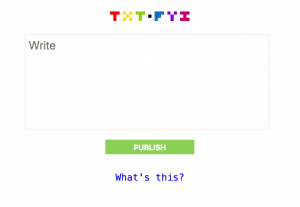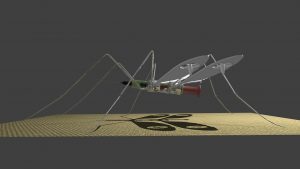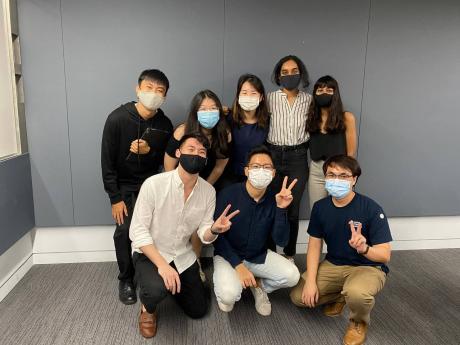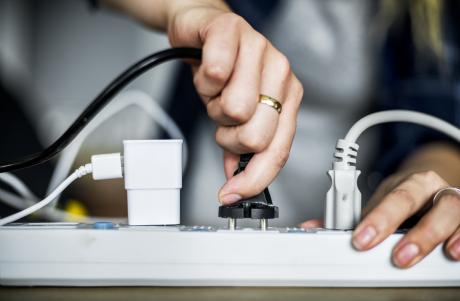#1

With the stiff competition in e-commerce, it can be difficult to make your items stand out from the pack. Recognising this, Nadia Al Sheikh created Deal’n , a unique platform for online retailers to list their products or promote their skills. Deal’n additionally boosts listings by vulnerable individuals such as single mothers, ex-offenders or low-income senior citizens, bumping them up to the forefront of searches. Herself a single mother, Ms Al Sheikh understood the difficulty of making a living whilst managing personal problems, and started Deal’n as a way to enhance livelihood opportunities for disadvantaged groups. To date, the platform has more than 200 active users, and its partnering NPOs include the Singapore Environment Council, Diamonds on the Street, Daughters of Tomorrow, Orange Dolphin, GEM and Make the Change.
#2

The Internet can be a great place for children to learn and discover new skills and knowledge. But it can also be a dangerous playground that exposes them to unreliable or inappropriate content, cybercrime and online bullies. DQ World hopes to mitigate these cyber risks through targeted online education that equips children with digital citizenship skills and teaches them how to use the Internet more safely. Via this platform, the young ones will learn about privacy management, cyberbullying management, as well as critical thinking when it comes to differentiating between true and false information. DQ is user-friendly and utilises a fun Play & Learn model in which online rewards are unlocked after each lesson.
#3

Passionate about giving back but no idea how your skills can make a difference? You may want to check out Empact , an online volunteer ecosystem founded in 2011 by Peter Yang to promote skills-based volunteering. Via Empact, individuals and corporations can provide professional services to NPOs and social enterprises at discounted rates. Its members include HR consultants, accountants and lawyers who will take on any supporting or administrative work for social sector organisations to enhance their capacity. Empact’s volunteers themselves are also subject to training and review to ensure that high-quality services are rendered.
#4

In the rapidly evolving technology sector, many are equipping themselves with the necessary computing skills to land lucrative tech jobs. But did you know that relatively few women choose to study computer science? Hoping to close the gender gap in the tech industry, American lawyer and politician Reshma Saujani founded Girls Who Code . An NPO that aims to build the largest pipeline of future female engineers in the United States, it educates and equips young women with computing skills by offering programming, robotics and web design courses in schools and communities. These include a free seven-week summer programme for girls to learn coding and get exposed to jobs within the industry, as well as afterschool clubs for younger female students and trips to tech companies like Twitter and Facebook.
#5

In Brazil, there are about 15 million people struggling with speech disorders as a result of disabilities or illnesses such as autism, stroke and cerebral palsy. Moved by their plight, and wanting to improve communication between himself and his daughter who has cerebral palsy, Carlos Pereira teamed up with tech professionals, and speech and occupational therapists to develop Livox . A software app for smartphones and tablets, Livox applies intelligent algorithms that adjust to a wide range of disabilities such as Down syndrome, autism and stroke, and which interpret the user’s finger movements on the tablet to find out what they are trying to communicate. The application currently holds 25,000 images for users to choose from, and allows them to add photos, record songs, as well as create icons and descriptions. Livox is available in five languages: Portuguese, English, Arabic, German and Spanish.
#6
Moms Avenue is a blockchain-powered, reward-based social entrepreneurship platform designed for women. It aims to eliminate gender inequality in the entrepreneurial landscape by addressing common issues facing female entrepreneurs, such as high market entry cost, low crypto market participation rates, and a lack of business opportunities and contacts. Costing absolutely nothing to start a business on Moms Avenue, the site provides its members with easy access to peers, potential business partners, customers and role models. One of the key enablers of this platform is a unique and transparent rewards system that uses its own cryptocurrency, M.O.M tokens. These tokens flow among the different platforms users such as sellers and buyers, act as incentives to ensure quality content, and simplify the exchange of goods and services.
#7

As with other developed societies, Singapore’s population is ageing: citizens are living longer, its workforce is maturing and fertility rates are low. The nation therefore faces the question of how it will care for its growing number of elderly persons and help them age with dignity. Recognising this need, PulseSync leverages new technologies to create better caregiving solutions. Some of its products include Ingot, a cloud-based care management software that offers modules on residential care and homecare; as well as Gym Tonic, an integrated strength training management system. PulseSync’s solutions are adopted by caregivers and hospitals, and helps them to enhance productivity, patient safety and quality of care for its seniors.
#8

Did you know that over 65.3 million people worldwide have been forcefully displaced and alienated from their family members due to situations such as natural disasters, persecution and conflicts? Looking to address this issue, Refunite was founded in 2008 to help reconnect people to their missing loved ones via various mobile/online touch points including a helpline, SMS or a global database of over 600,000 profiles. Partnering with Ericsson, the United Nations, Facebook and various mobile network operators, Refunite hopes to reunite more families through a more efficient tracing system.
#9

Hoping to make education, employment, recreation and facilities more accessible to people with disabilities, R&D non-profit Trampolene and Singapore Management University co-developed a route-planning app for wheelchair users. SmartBFA makes use of crowdsourced data to provide accurate recommendations on the shortest, barrier-free routes based on real-time updates on traffic situations, pavement conditions and obstacles. The pilot was launched in February 2018 and a study is underway to gather data from 260 residents until June 2019.
#10

Live more, iron less. That is the motto of The Social Iron , Singapore’s first ironing subscription service for neighbours, by neighbours. Providing door-to-door delivery with a two-day turnaround, they offer several pricing packages ranging between 6 to 12 pieces a week, and a one-time S$3 per piece service. But what makes this company unique is its win–win strategy for two groups of people: those pressed for time (busy working individuals), and those pressed for money (low-income elderly persons). The seniors, ironing out of the comfort of their own homes, get to generate an income while their busier, younger neighbours are grateful to be relieved of the load.
#11

According to the Food and Agriculture Organization of the United Nations, approximately a third of the food produced worldwide for human consumption gets lost or wasted every year. Hoping to minimise this wastage is Spoiler Alert , a business-to-business service that helps food manufacturers, wholesale distributors and grocery retailers manage any unsold food inventory more effectively, and without having to throw them away. This tech start-up offers business intelligence solutions for food recovery and waste diversion via a controlled relationship management portal that oversees real-time food donations, discounted sales and organic by-product redistributions. With more sustainable food systems and operating procedures in place, businesses can do their bit to reduce food wastage.
#12

We’ve seen many cases of online postings going viral, but what does it mean to go anti-viral? For those who do not relish the shares and likes, there’s now a platform that lets you publish your thoughts and not have to worry about it appearing in a stranger’s news feed. Txt.fyi is the brainchild of Rob Beschizza, a coder and the managing editor of media and news company Boing Boing. A space where people can “publish their thoughts without any false game of social manipulation, one-upmanship, and favour-trading”, Txt.fyi has no social mechanic features such as “Like” and “Share” buttons, or even a comments section. There is also no feed to indicate which of your posts are more popular and besides, entries on Txt.fyi will not show up on search engines. The only way anyone can see your posts is if you sent them the URL or posted the weblink somewhere yourself. If you’re someone who prefers to put out unfiltered blog entries and not have to worry about popularity or backlash, this may be the platform for you.
#13

Imagine being able to fit a whole year’s trash into a half-litre jar. Sounds impossible? Not for Bea Johnson, the creator of Zero Waste Home . Originally from France but presently residing in California, Bea’s “waste-saving” practices include not purchasing items with packaging, buying her food in bulk from farmers and creating her own cosmetics. Her zero-waste lifestyle is based around the five R’s: refuse what you don’t need; reduce what you need; reuse what you consume; and recycle or rot the rest. Check out her blog as well as her best-selling book, Zero Waste Home, available off Amazon.
#14

There are over two billion people in the world today who lack adequate access to vital medical aid, including blood and vaccines. This is mainly due to challenging terrain and insufficient infrastructure that prevent medical supplies from reaching remote clinics. In Rwanda, urgent medical deliveries can take up to four hours due to impassable mountains and washed-out roads. But thanks to the world’s only drone delivery system offered by aerospace company Zipline , anyone in Rwanda is only within 30 minutes of receiving urgent medical supplies. Once health workers place an order via text, drones are then deployed to any location, no matter how inaccessible. Zipline has plans to expand its services to Tanzania and the United States.
Banner image by Edu Lauton via Unsplash.
Know of more cool people doing cool stuff? Write us at hello@socialspacemag.org to get them featured!









Comments